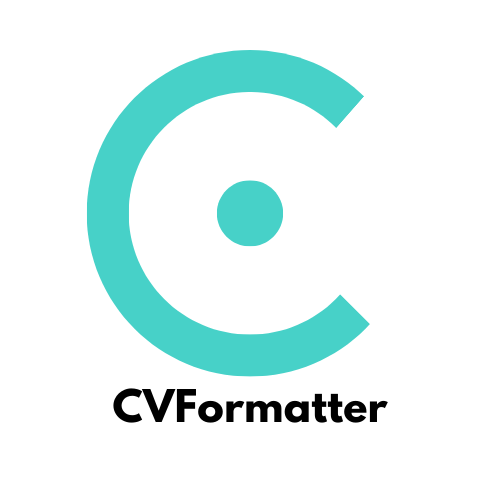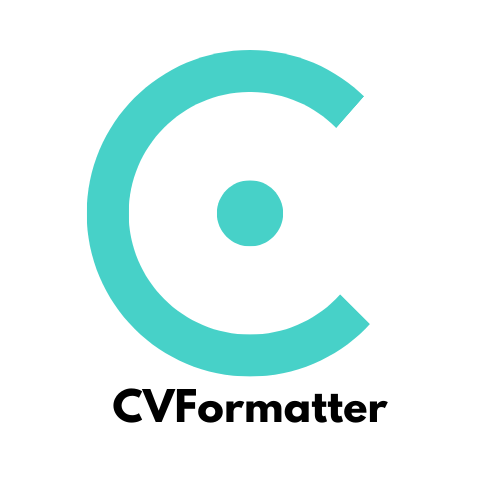Top 10 Resume Parsing Software Tools to Streamline Hiring

Hiring the right talent can feel like finding a needle in a haystack, especially when you're sifting through hundreds of resumes. Manual screening takes time and often leads to fatigue, which increases the chances of overlooking great candidates. That’s where resume parsing software steps in to save the day. These tools use advanced technology to extract and organize key details from resumes in seconds, making your hiring process faster and more efficient.
Did you know AI-powered resume parsers can cut screening time by up to 75%? In high-volume hiring, where recruiters spend just 7.4 seconds per resume, this kind of automation can be a game-changer. By eliminating repetitive tasks, you can focus on what really matters—connecting with top talent.
Key Takeaways
Resume parsing tools save time by screening resumes faster.
These tools pull data from resumes and organize it clearly.
They help reduce bias by focusing on skills and experience.
They work with tracking systems to make hiring easier and faster.
Picking the right tool can improve hiring and save money.
What Is Resume Parsing Software?

Definition and Purpose
Resume parsing software is a game-changer for recruiters like you. It automates the extraction, sorting, and categorization of information from resumes, saving you hours of manual work. Think of it as your personal assistant that scans resumes, picks out the most important details, and organizes them neatly for you. Using advanced algorithms, this software converts unstructured data into a structured format, making it easier to filter and analyze applications.
Why is this important? Because resumes come in all shapes and sizes. Parsing tools ensure you don’t miss out on great candidates due to formatting quirks. They also help you focus on the data that matters most—skills, experience, and qualifications—so you can make faster, smarter hiring decisions.
How It Works
Ever wondered how resume parsing works behind the scenes? It’s a fascinating process that starts with uploading a resume. The software extracts text from the document, breaks it into sections, and identifies key data fields like contact details, work history, education, and skills.
Here’s a quick breakdown of the workflow:
Data Input: You upload resumes in formats like PDF or Word.
Text Extraction: The software pulls out all the text.
Segmentation: It divides the text into blocks like "Work Experience" or "Education."
Data Field Identification: Specific details like job titles and dates are pinpointed.
Normalization: The data is cleaned up for consistency.
Keyword Matching: Resumes are matched to job descriptions using keywords.
Database Storage: Parsed data is stored in a searchable database.
Integration: The software syncs with your applicant tracking system (ATS).
This process ensures you get accurate, structured data that’s ready for analysis. Plus, it reduces unconscious bias by focusing on objective information.
Key Benefits for Recruiters and HR Teams
Resume parsing software isn’t just about saving time—it’s about transforming your hiring process. Here’s how it helps:
Benefit | Improvement |
|---|---|
Time efficiency | |
Improved accuracy | Extracts relevant information with precision. |
Enhanced candidate matching | Aligns resumes with job requirements seamlessly. |
Reduction of unconscious bias | Promotes fair hiring decisions. |
Scalability | Handles large volumes of resumes effortlessly. |
Imagine being able to screen hundreds of resumes in minutes while improving the quality of your shortlist. That’s the power of resume parsing software. It’s especially useful for high-volume hiring, where speed and accuracy are critical.
Top 10 Best Resume Parsing Software Tools in 2025

Tool #1: CVFormatter
Key Features
CVFormatter is a standout in the world of resume parsing software. It’s packed with features designed to make your hiring process faster and more efficient. Here’s what makes it shine:
Automates repetitive tasks, saving you up to 80% of the time spent on manual resume reviews.
Converts resumes into standardized blind profiles, making it easier to compare candidates.
Integrates seamlessly with your existing systems, ensuring data accuracy and consistency.
Offers advanced search solutions, allowing you to find the perfect candidate with semantic searches.
Matches candidates to job descriptions, scoring them based on their fit for specific roles.
Pros and Cons
Pros:
Saves significant time with automation.
Enhances candidate presentation with clean, professional formatting.
Supports bulk uploads and multiple file formats like PDF, Word, and even images.
Enables team collaboration with different access rights, at no extra charges.
Includes advanced features like resume summarizing, proofreading, and translation, all in one.
Cons:
Requires initial setup to customize templates, which takes 24 hours usually. Given it's a one-time setup, it's acceptable to most recruitment agencies that want to ensure the template is followed 100%.
Pricing
CVFormatter offers flexible pricing plans to suit your needs. You can choose between pay-as-you-go credits or subscription plans, making it ideal for both small agencies and large enterprises.
Best Use Cases
CVFormatter is perfect for recruitment agencies looking to save time and improve efficiency. It’s especially useful for high-volume hiring or when you need to present candidates in a consistent, professional format to clients.
Tool #2: Skima AI
Skima AI offers the most precise resume parser. It quickly scans 200+ data points from PDF, DOC/DOCX, HTML, TXT, and image files in seconds. Then, it converts that data into a structured, searchable format.
Skima AI's CV parser is designed for top recruiters and hiring teams. It delivers structured outputs (JSON, CSV, XLS, PDF). It also matches candidates to job requirements using in-house AI algorithms. This process is simple, accurate, and fast.Key Features
Key Feautres of Skima AI Resume Parser
Extract data from 200+ fields (experience, certifications, skills, social links, etc).
Bulk upload and email integration are available.
Flexible integrations with ATSs, job boards, and more.
The API supports multi-language parsing in over 56 languages.
An advanced skills taxonomy includes sectors like IT, finance, legal, and healthcare. Custom taxonomies are also supported.
GDPR and SOC2 compliant, no data is retained.
Pros and Cons
Pros:
It manages complex resume layouts and extracts over 200 data points accurately. This helps recruiters save time in screening and find better matches for candidates.
You can easily sync candidate data with bulk uploads, email parsing, and flexible output formats like JSON, CSV, and XLS.
It provides SDKs in different languages, is GDPR/SOC 2 compliant, and has no data retention. These features are excellent for privacy-sensitive uses.
Verified reviewers praise Skima AI for its fast support and onboarding help. This makes it easier for new users to learn the system.
Cons:
The on-premises deployment option may require additional infrastructure costs.
Pricing
Skima AI has two pricing plans: a free plan and a volume plan. You can begin with the free plan and switch to the volume plan when you are happy with the results. The volume plan has custom pricing.
Best Use Cases
Skima AI is ideal for high-volume hiring teams, agencies, and recruiters. It saves time and resources significantly by offering a structured resume database and matching. It is also compliant with enterprise grade security.
Tool #3: RChilli
Key Features
RChilli is one of the best resume parsing software tools, known for its robust capabilities. It processes over 4.1 billion documents annually and operates in more than 50 countries. Key features include:
Advanced taxonomy for tagging resumes, ensuring no skills are overlooked.
Classification of operational, soft, and behavioral skills.
Compliance with global standards like GDPR, ISO 27001:2022, and SOC 2 Type II.
Pros and Cons
Pros:
High success rate (80%) for matching related skills and jobs.
Expands search results, delivering up to 90% ROI.
Handles massive volumes of resumes efficiently.
Cons:
May require training to fully utilize advanced features.
Pricing
RChilli offers customized pricing based on your organization’s needs. Contact their team for a tailored quote.
Best Use Cases
RChilli is ideal for global companies managing large-scale hiring. It’s also great for organizations that need detailed skill classification and compliance with international standards.

Tool #4: HireAbility
Key Features
HireAbility is a trusted name in resume parsing solutions. It excels in extracting and organizing data from resumes with precision. Key features include:
Multilingual parsing capabilities, supporting over 40 languages.
Integration with applicant tracking systems for seamless data flow.
AI-powered algorithms for accurate data extraction.
Pros and Cons
Pros:
Supports global hiring with multilingual parsing.
Works well with existing HR tools and systems.
Delivers highly accurate results.
Cons:
Limited customization options for smaller teams.
Pricing
HireAbility offers competitive pricing plans based on the number of resumes processed. It’s a cost-effective choice for businesses of all sizes.
Best Use Cases
HireAbility is perfect for companies with diverse hiring needs, especially those recruiting internationally. It’s also a great fit for organizations that rely on applicant tracking systems for their hiring workflows.
Tool #5: DaXtra Parser
Key Features
DaXtra Parser stands out as one of the most advanced resume parsing tools available today. It boasts an impressive accuracy rate of up to 95%, thanks to its award-winning natural language processing (NLP) algorithms. These algorithms have been fine-tuned through years of research, ensuring precise extraction of key details from resumes. The software supports multiple languages, making it ideal for global hiring. Additionally, DaXtra Parser integrates seamlessly with various recruitment tools, including your applicant tracking system, to streamline workflows.
Other notable features include:
Parsing resumes in multiple formats, such as PDF, Word, and HTML.
Real-time data extraction for faster decision-making.
Customizable parsing rules to meet specific hiring needs.
Pros and Cons
Pros:
Exceptional parsing accuracy, reducing errors in data extraction.
Multilingual support for international recruitment.
Easy integration with existing recruitment software.
Cons:
May require a learning curve for smaller teams unfamiliar with advanced parsing tools.
Pricing
DaXtra Parser offers flexible pricing plans tailored to your organization’s size and hiring volume. You can contact their team for a customized quote.
Best Use Cases
DaXtra Parser is perfect for staffing agencies and enterprises that handle high volumes of resumes. It’s especially useful for global companies needing multilingual parsing capabilities and seamless integration with their applicant tracking system.
Tool #6: Affinda
Key Features
Affinda is a powerful resume parsing software that combines simplicity with advanced functionality. It uses AI-driven algorithms to extract and organize resume data with remarkable precision. The software supports bulk uploads, allowing you to process hundreds of resumes in one go. It also offers customizable templates, ensuring parsed resumes align with your branding.
Affinda’s standout feature is its ability to deliver consistent performance across various tests. In comparative benchmarks, Affinda outperformed competitors in accuracy and efficiency.
Pros and Cons
Pros:
User-friendly interface, making it accessible for teams of all sizes.
High accuracy in parsing resumes, even with complex formats.
Cost-effective solution for small and medium-sized businesses.
Cons:
Limited advanced features for large-scale enterprises.
Pricing
Affinda offers transparent pricing with pay-as-you-go and subscription options. This flexibility makes it suitable for businesses with varying hiring needs.
Best Use Cases
Affinda is ideal for small to mid-sized companies looking for an affordable yet reliable resume parsing solution. It’s also a great choice for organizations that prioritize ease of use and quick setup.
Affinda's Performance | Competitor's Performance | |
|---|---|---|
Test 1 | Better | Worse |
Test 2 | Better | Worse |
Test 3 | Better | Worse |
Tool #7: Sovren
Key Features
Sovren is one of the best resume parsing software tools for businesses seeking advanced customization and scalability. It uses cutting-edge AI to extract data from resumes with high accuracy. The software supports over 30 languages, making it a great choice for global hiring. Sovren also offers detailed analytics, helping you gain insights into your talent pool.
Key features include:
Parsing resumes and matching candidates to job descriptions.
Advanced configuration options for tailored parsing.
Integration with popular applicant tracking systems.
Pros and Cons
Pros:
Highly customizable, catering to unique business needs.
Excellent support for multilingual parsing.
Provides actionable insights through analytics.
Cons:
Higher cost compared to other tools, which may not suit smaller businesses.
Pricing
Sovren offers enterprise-level pricing, with plans designed for large organizations. While it’s on the pricier side, the features and scalability justify the investment.
Best Use Cases
Sovren is best suited for large enterprises and recruitment firms that need advanced customization and scalability. It’s also a top choice for companies hiring across multiple regions and languages.
Tool #8: Zoho Recruit
Key Features
Zoho Recruit is a versatile resume parsing software designed to simplify your hiring process. It offers a range of features that cater to both small businesses and large enterprises:
Parses resumes quickly and accurately, extracting key details like skills, experience, and education.
Integrates seamlessly with Zoho’s suite of tools, including its applicant tracking system.
Provides advanced search filters to help you find the perfect candidate.
Offers customizable workflows to match your recruitment needs.
Supports multiple file formats, ensuring compatibility with various resume types.
Pros and Cons
Pros:
User-friendly interface, making it easy for teams to adopt.
Excellent integration with other Zoho tools.
Affordable pricing for small businesses.
Cons:
Limited advanced features compared to some competitors.
Pricing
Zoho Recruit offers flexible pricing plans, starting with a free tier for basic features. Paid plans begin at $25 per user per month, making it an affordable option for businesses of all sizes.
Best Use Cases
Zoho Recruit is ideal for small to mid-sized companies looking for an all-in-one recruitment solution. It’s also a great choice if you’re already using other Zoho tools and want seamless integration.
Tool #9: Textkernel
Key Features
Textkernel is one of the best resume parsing software tools for companies with global hiring needs. Its AI-powered solutions make it a standout choice:
Multilingual parsing capabilities, supporting over 20 languages.
Advanced semantic search to match resumes with job descriptions.
Integration with popular applicant tracking systems and HR tools.
Real-time parsing for faster decision-making.
Customizable parsing rules to meet specific recruitment requirements.
Pros and Cons
Pros:
Exceptional accuracy in parsing resumes, even in multiple languages.
Powerful search capabilities for better candidate matching.
Easy integration with existing recruitment software.
Cons:
Higher cost may not suit smaller businesses.
Pricing
Textkernel offers customized pricing based on your organization’s size and hiring needs. Contact their team for a tailored quote.
Best Use Cases
Textkernel is perfect for global companies managing multilingual hiring. It’s also a great fit for organizations that need advanced search and parsing capabilities to streamline their recruitment process.
Tool #10: Ducknowl
Key Features
Ducknowl combines advanced technology with user-friendly features to deliver precise resume parsing. Here’s what makes it stand out:
Uses natural language processing (NLP) and machine learning for accurate data extraction.
Extracts essential details like contact information, work history, skills, and education.
Allows customization of parsing rules to fit your specific hiring needs.
Supports multiple resume formats, including PDF and Word.
Offers seamless integration with applicant tracking systems.
Pros and Cons
Pros:
High accuracy in parsing resumes, even with complex formats.
Customizable features to match unique recruitment workflows.
Handles large volumes of resumes efficiently.
Cons:
May require some training for teams new to advanced parsing tools.
Pricing
Ducknowl provides flexible pricing options, including pay-as-you-go and subscription plans. This makes it suitable for businesses of all sizes.
Best Use Cases
Ducknowl is ideal for companies that need precise resume parsing and customizable solutions. It’s especially useful for organizations handling high volumes of resumes or requiring tailored parsing rules.
How to Choose the Best Resume Parsing Software
Choosing the right resume parsing software can feel overwhelming, but focusing on a few key factors can simplify the process. Let’s break it down step by step.
Accuracy and Parsing Capabilities
Accuracy is the backbone of any resume parsing tool. You want software that extracts data with precision, even from resumes with complex formats. Look for tools that excel in identifying key details like work history, skills, and education. Some tools even use advanced AI to handle multilingual resumes, which is a huge plus if you’re hiring globally.
Comparative tests show that tools like Kompas and Elicit perform well in parsing accuracy, but each has its strengths. For example:
Tool | Strengths | Limitations |
|---|---|---|
Kompas | Handles complex multi-part questions, enhances depth and accuracy | May lack creative inference, relies on existing sources for synthesis |
Elicit | Provides scholarly peer-reviewed knowledge, high accuracy within its domain | Summaries can be incomplete, struggles with current events or niche topics |
When evaluating options, consider your specific needs. Do you handle large-scale resume screening? If so, prioritize tools with proven accuracy and the ability to process high volumes efficiently.
Integration with Existing Systems
Your resume parser should work seamlessly with your current applicant tracking systems (ATS) or HR tools. Integration ensures smooth data sharing and eliminates manual data entry, saving you time and reducing errors.
Many tools offer integration capabilities, but poor field mapping or lack of data validation can cause issues. To avoid this, choose software that supports proper data mapping and provides training for your team. This will ensure a smooth candidate screening process and increased efficiency in your workflow.
Scalability for Growing Teams
As your organization grows, your hiring needs will expand too. The right resume parsing software should scale effortlessly to handle larger volumes of resumes. Look for tools that maintain speed and accuracy, even as your talent pool grows.
Scalability isn’t just about handling more resumes. It’s about creating sustainable processes that adapt to your evolving needs. For example:
Key Aspect | Description |
|---|---|
Integration | Optimizing data flow and automating tasks leads to improved hiring speed and quality. |
Scalability | Software should handle increased resume volumes as hiring needs expand. |
Sustainable Processes | Planning for future growth ensures the investment remains valuable as the organization evolves. |
By choosing scalable software, you’ll future-proof your recruitment process and ensure it grows with your team.
Cost and ROI Considerations
When choosing resume parsing software, cost is always a big factor. But it’s not just about the price tag—it’s about the return on investment (ROI). You want a tool that saves time, improves hiring quality, and ultimately pays for itself. So, how do you figure out if a tool is worth it?
Start by looking at how much time it saves. A good parser can cut hours of manual work, freeing you up to focus on connecting with candidates. This time savings translates directly into cost savings. For example, automation reduces your time-to-hire, which means you can fill roles faster and avoid the costs of prolonged vacancies.
Another key metric is cost-per-hire. By automating repetitive tasks, you’ll save resources that would otherwise go into manual resume screening. Plus, better parsing accuracy leads to improved quality-of-hire, which means you’re bringing in top talent who stay longer and perform better.
Here’s a quick breakdown of the benefits:
Benefit | Description |
|---|---|
Error Reduction | Effective software minimizes errors in the hiring process. |
Bulk Processing | It can handle large volumes of resumes efficiently. |
Time Savings | Frees up recruiters' time, allowing them to focus on candidate engagement. |
Improved Hiring Quality | Better hires lead to enhanced productivity and employee retention. |
Positive Candidate Experience | A good candidate experience enhances the company's reputation and public sentiment. |
To maximize ROI, make sure the software integrates well with your existing systems. Smooth data flow and automated tasks improve hiring speed and quality. Track metrics like time-to-hire and cost-per-hire to measure the tool’s impact. This data helps you refine your hiring strategy and get the most out of your investment.
💡 Tip: Don’t just think about the upfront cost. Consider the long-term savings and benefits the software brings to your hiring process.
Resume parsing software has revolutionized the hiring process, offering a host of benefits that make recruitment faster, smarter, and more efficient. These tools save you countless hours by automating resume reviews, allowing you to focus on connecting with top candidates. They also reduce unconscious bias by evaluating applicants based on skills and qualifications rather than subjective judgment.
Here’s a quick recap of what these tools bring to the table:
Benefit | Description |
|---|---|
Time Savings | Automated parsing significantly reduces the time spent manually reviewing resumes. |
Increased Productivity | Recruiters can quickly filter through a large pool of applicants based on specific criteria. |
Minimized Human Error | Parsing tools eliminate the risk of manual errors in data entry, ensuring accurate information. |
Objective Evaluation | Algorithms promote an objective evaluation of candidates, minimizing unconscious biases. |
Faster Response Times | Job seekers receive quicker responses, enhancing their experience with the hiring process. |
By using these tools, you’ll not only streamline your workflow but also improve the overall quality of your hiring decisions. Whether you’re a small business or a global enterprise, there’s a resume parsing tool out there that fits your needs. Take the leap and explore these solutions today—you’ll wonder how you ever managed without them!
💡 Tip: Automating your hiring process doesn’t just save time; it ensures you never miss out on the perfect candidate.


